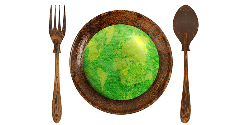News
Insect protein market heats up in APAC region
12 Jun 2023
Packed with superfood-level nutritional benefits and with a neutral taste, Asian brands are using insect protein in finished products, such as Thailand’s Proothie, which makes cricket protein granola bars.
Insects like crickets have become a popular alternative to both animal and plant-based proteins, with increasing opportunities for growth in the Asia-Pacific region.

Insect farming is big in Asia, and the area’s advanced manufacturing technology lowers production costs. Insects are also familiar as food to consumers, as some insects have been considered a delicacy in certain Asian cultures for centuries.
But the sector has faced challenges. While Asian consumers are accustomed to occasionally including insects in their diets, the concept of using insects as an alternative to traditional animal protein has been slower to catch on. Nevertheless, in Asia, brands and suppliers are beginning to gain ground in the region through snack products.
Thailand-based Proothie offers cricket granola protein bars, cricket powder and a plant fertilizer, selling primarily in Japan and Thailand. Another Thai firm, Cric-Cro, makes a crispy brownie using 100% cricket powder.
Suppliers also target the animal feed market. In Singapore, Protenga supplies protein and oil made from insects for use in feed and fertilizer. It also manufactures insect farming equipment that recaptures nutrients from organic waste and turns it into valuable insect protein.
Cricket One in Vietnam and Thai Ento Food in Thailand also supply cricket-based high protein powder as an ingredient for food, beverages, pet food and cosmetics.
French insect supplier inks deal with Korean tech firm
France-based insect production startup Ÿnsect made a deal in April with Korean tech company Lotte R&D Center. The pair signed a Memorandum of Understanding to conduct joint research on developing insect-based food products for customers in Europe and South Korea.
“Through Lotte R&D Center, we now benefit from the support of a key player to better understand the different markets in which we are establishing ourselves across the Asian continent and thus be able to meet the demand for local proteins,” said Guillaume Daoulas, Ÿnsect food and plant sales director.
The companies will also work to educate consumers about the health benefits of insects and conduct surveys on consumer interest in insect-based products.
The demand for alternative, high quality protein continues to increase around the world. The production of animal-based protein negatively impacts the environment and contributes to climate change, and the plant-based protein industry is doing its best to function as an equal substitution.
But protein from insects is another viable option because many insects contain valuable nutrition like amino acids, iron, magnesium, and calcium. In 2022, the global insect protein market was valued at $700 million, and is projected to climb to $6.8 billion by 2032.
Crickets have been used as an ingredient in snack products for North American and European brands; Chirps manufactures tortilla chips, Small Giants makes a variety of crackers, Exo Bar makes protein bars, Crunchy Critters makes trail mix and Näak makes protein powder, all from a base of crickets.
Related news

NMN: An on-trend ‘fountain of youth’ ingredient for anti-ageing products
24 Oct 2025
Dubbed an “on-trend fountain of youth ingredient” by Mintel, NMN is booming in anti-ageing ingestible products in Asia – but regulatory roadblocks are thwarting NPD efforts elsewhere, say experts.
Read more
Food security-insecurity gap grows, hitting vulnerable regions hardest
16 Oct 2025
While food security has increased in most countries, the world’s most vulnerable nations’ struggles continue and intensify, a USDA analysis reveals.
Read more
India’s biscuit and cookie consumers want extra indulgence
16 Sep 2025
Premiumisation, health consciousness, and a focus on texture are driving new product developments (NPD) in the Indian biscuit and cookie market, Mintel figures suggest.
Read more
Climate change threatens matcha supplies as social media fuels matcha mania
8 Sep 2025
Matcha’s popularity is rising across the globe, yet shrinking harvests caused by record-breaking heatwaves in Japan are dwindling global supplies.
Read more
Australia's snacking sector achieves near-universal appeal
22 Aug 2025
As many as 99% of Australian consumers snack daily, with generational differences and increasing demands presenting novel manufacturing opportunities, according to Mintel data.
Read more
World Food Safety Day shines a spotlight on science
19 Jun 2025
On 7 June, the World Health Organization (WHO) held its annual World Food Safety Day, highlighting the role scientific research and innovation play in supporting consumers’ health.
Read more
Africa and Middle East most vulnerable markets to food fraud
28 May 2025
Consumers in Africa and the Middle East face a higher risk of consuming adulterated foods – especially with tariffs causing chaos in the global food supply chain, experts warn.
Read more
East takes on West in the fight for future food flavours
30 Apr 2025
Asian and South American flavours are now key components on global menus, driven by a growing global appetite for culinary mashups.
Read more
Will Trump lower tariff hikes?
25 Apr 2025
The US President’s plan to reduce the 145% tariffs on China’s food and beverage market raises questions over whether a turnaround is likely for other regions.
Read more
Future F&B flavours favour exploration and explosive taste profiles
25 Mar 2025
Exploration and experimentation will define the future of flavour, according to Mintel, as consumers seek out taste profiles and textures that offer an adventurous eating experience.
Read more